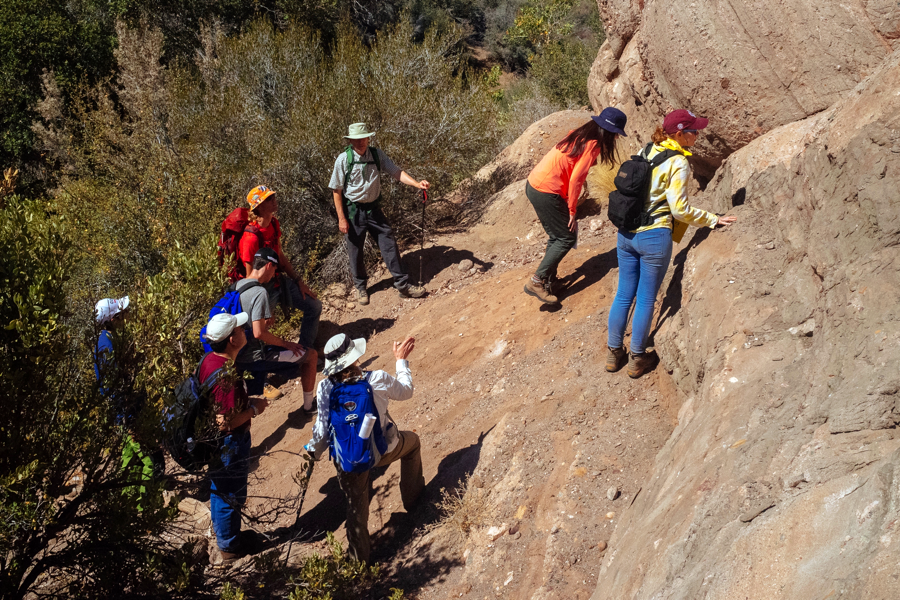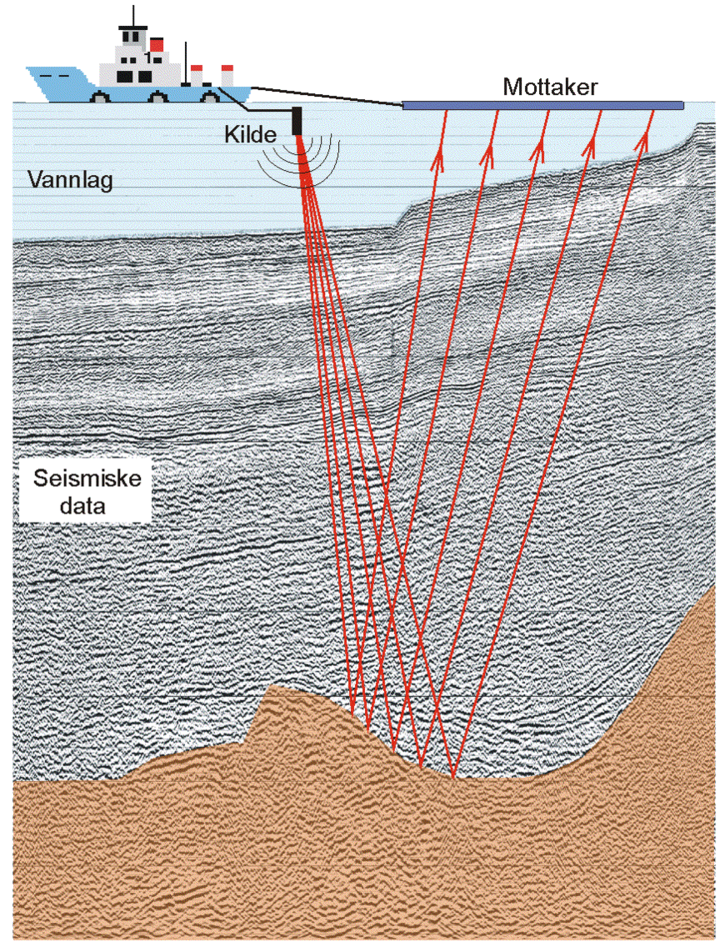All Categories
Featured
Table of Contents
- – Geoscience, Geophysics Option, in Yokine Aus...
- – Why Study Geology? in Mount Lawley WA 2020
- – Geophysical Survey in Mariginup WA 2020
- – What's The Difference Between A Geotechnica...
- – Careers In Geology And Geophysics in Woodbr...
- – Geophysical Surveys: Definition & Methods ...
- – How To Become A Geophysicist in Neerabup O...
Geoscience, Geophysics Option, in Yokine Australia 2021
doi:10. 1556/AGeod. 45.2010. 2.9. S2CID 122239663. Temple 2006, pp. 162166 Russo, Lucio (2004 ). Berlin: Springer. p. 273277. Temple 2006, pp. 177181 Newton 1999 Area 3 American Geophysical Union (2011 ). "Our Science". About AGU. Recovered 30 September 2011. "About IUGG". 2011. Obtained 30 September 2011. "AGUs Cryosphere Focus Group". 2011. Archived from the original on 16 November 2011.
Bozorgnia, Yousef; Bertero, Vitelmo V. (2004 ). Earthquake Engineering: From Engineering Seismology to Performance-Based Engineering. CRC Press. ISBN 978-0-8493-1439-1. Chemin, Jean-Yves; Desjardins, Benoit; Gallagher, Isabelle; Grenier, Emmanuel (2006 ). Mathematical geophysics: an introduction to rotating fluids and the Navier-Stokes equations. Oxford lecture series in mathematics and its applications. Oxford University Press. ISBN 0-19-857133-X.
Publication of the Seismological Society of America. 59 (1 ): 183227. Defense Mapping Company (1984 ).
Why Study Geology? in Mount Lawley WA 2020
Retrieved 30 September 2011. Eratosthenes (2010 ). For Space Research Study.
Recovered 30 September 2011. Obtained 30 September 2011.:10.
Geophysical Survey in Mariginup WA 2020
Lowrie, William (2004 ). Merrill, Ronald T.; Mc, Elhinny, Michael W.; Mc, Fadden, Phillip L. (1998 ). International Geophysics Series.
They also research study changes in its resources to provide assistance in meeting human needs, such as for water, and to anticipate geological threats and dangers. Geoscientists utilize a variety of tools in their work. In the field, they may use a hammer and chisel to gather rock samples or ground-penetrating radar equipment to look for minerals.
They also might utilize remote sensing devices to gather information, in addition to geographic info systems (GIS) and modeling software application to examine the information collected. Geoscientists may monitor the work of technicians and coordinate work with other scientists, both in the field and in the lab. As geological difficulties increase, geoscientists might opt to work as generalists.
What's The Difference Between A Geotechnical And ... in Ashfield Oz 2023
The following are examples of types of geoscientists: geologists study how repercussions of human activity, such as pollution and waste management, impact the quality of the Earth's air, soil, and water. They also may work to fix issues connected with natural threats, such as flooding and disintegration. study the products, procedures, and history of the Earth.
There are subgroups of geologists as well, such as stratigraphers, who study stratified rock, and mineralogists, who study the structure and composition of minerals. study the motion and blood circulation of ocean waters; the physical and chemical properties of the oceans; and the methods these homes impact seaside locations, climate, and weather.
They also research changes in its resources to provide guidance in meeting human demands, such as for water, and to anticipate geological risks and hazards. Geoscientists utilize a variety of tools in their work. In the field, they may use a hammer and chisel to gather rock samples or ground-penetrating radar equipment to browse for minerals.
Careers In Geology And Geophysics in Woodbridge Australia 2022


They likewise may use remote noticing devices to gather data, in addition to geographical info systems (GIS) and modeling software to evaluate the data collected. Geoscientists might monitor the work of professionals and coordinate work with other scientists, both in the field and in the lab. As geological challenges increase, geoscientists may opt to work as generalists.
The following are examples of types of geoscientists: geologists study how effects of human activity, such as pollution and waste management, affect the quality of the Earth's air, soil, and water. They likewise might work to resolve problems related to natural dangers, such as flooding and erosion. study the products, procedures, and history of the Earth.
There are subgroups of geologists too, such as stratigraphers, who study stratified rock, and mineralogists, who study the structure and composition of minerals. study the motion and flow of ocean waters; the physical and chemical residential or commercial properties of the oceans; and the ways these properties impact coastal locations, environment, and weather condition.
Geophysical Surveys: Definition & Methods in Henley Brook WA 2021
They also research study changes in its resources to offer assistance in conference human needs, such as for water, and to anticipate geological threats and dangers. Geoscientists use a variety of tools in their work. In the field, they may use a hammer and chisel to gather rock samples or ground-penetrating radar equipment to look for minerals.
They likewise may use remote noticing equipment to collect data, along with geographic information systems (GIS) and modeling software application to analyze the information gathered. Geoscientists might monitor the work of technicians and coordinate work with other researchers, both in the field and in the lab. As geological obstacles increase, geoscientists may choose to work as generalists.
The following are examples of kinds of geoscientists: geologists study how consequences of human activity, such as pollution and waste management, impact the quality of the Earth's air, soil, and water. They likewise might work to solve issues associated with natural hazards, such as flooding and erosion. study the materials, procedures, and history of the Earth.
How To Become A Geophysicist in Neerabup Oz 2020
There are subgroups of geologists too, such as stratigraphers, who study stratified rock, and mineralogists, who study the structure and composition of minerals. study the movement and blood circulation of ocean waters; the physical and chemical homes of the oceans; and the ways these residential or commercial properties affect seaside locations, environment, and weather.
Table of Contents
- – Geoscience, Geophysics Option, in Yokine Aus...
- – Why Study Geology? in Mount Lawley WA 2020
- – Geophysical Survey in Mariginup WA 2020
- – What's The Difference Between A Geotechnica...
- – Careers In Geology And Geophysics in Woodbr...
- – Geophysical Surveys: Definition & Methods ...
- – How To Become A Geophysicist in Neerabup O...
Latest Posts
Airborne Geophysical Survey in Hocking Aus 2023
Geophysical Survey Services - Geophysical Test Methods in Karrinyup Australia 2020
Geophysicist: Job Description, Duties And Requirements in The Vines Aus 2020
More
Latest Posts
Airborne Geophysical Survey in Hocking Aus 2023
Geophysical Survey Services - Geophysical Test Methods in Karrinyup Australia 2020
Geophysicist: Job Description, Duties And Requirements in The Vines Aus 2020